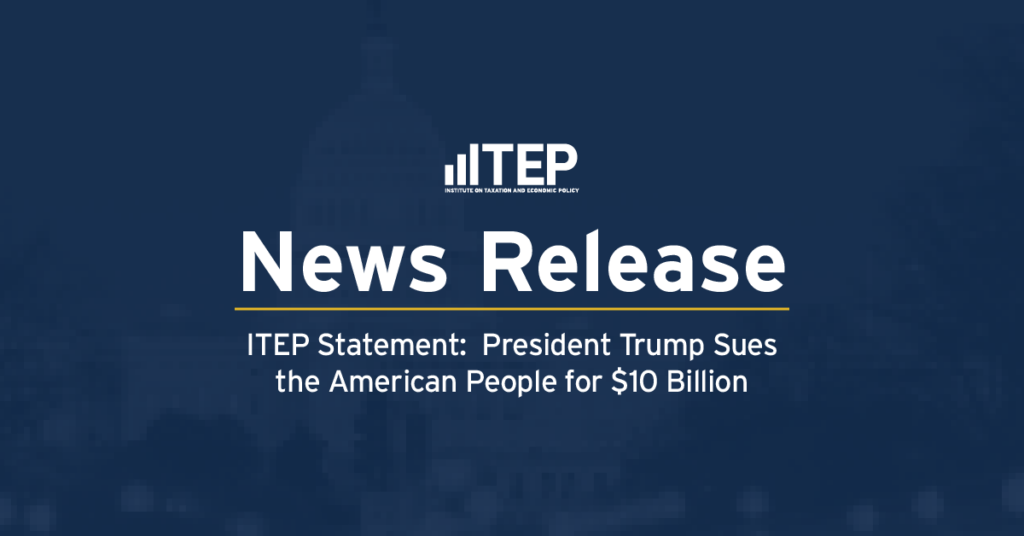A tiny fraction of estates will be subject to the tax in 2018
The Tax Cuts and Jobs Act drastically reduced the number of estates that are subject to the estate tax, which is an incredible feat given only a fraction of 1 percent of estates owed any tax in recent years, the Institute on Taxation and Economic Policy said today.
A new ITEP report (The Federal Estate Tax: An Important Revenue Source) estimates 0.06 percent of estates will owe federal estate tax in 2018, down from 0.18 in 2013, the most recent year for which data are available. This is directly because the 2017 federal tax law doubled the value of estates exempt from the tax to $11 million ($22 million for married couples).
“Weakening the estate tax is part of a broader agenda to ensure the nation’s wealthiest citizens are paying as little federal tax as possible,” said Alan Essig, executive director of ITEP. “The estate tax was once a check on dynastic, tax-free wealth. In the 1970s when it reached its peak, income and wealth inequality were not as pronounced. But over the years, lawmakers have intentionally eroded the estate tax just as they have deliberately passed other policies that allow money and power to concentrate among the elite few.”
The continued erosion of the estate tax has a cost. Over 10 years, the U.S. Treasury will lose an additional $75 billion due to the Tax Cuts and Jobs Act estate tax provisions, whereas a more robust estate tax could raise hundreds of billions in needed revenue. The report provides important historical and contextual information about the estate tax, including:
- At its peak in the 1970s, 7 percent of estates paid the estate tax.
- Before the Bush tax cuts, about 2.16 percent of all estates were subject to the tax.
- In 2001, the Bush tax cuts included gradual erosion of the estate tax, repealing it altogether in 2010.
- As part of a budget compromise at the end of 2010, Congress and the Obama Administration agreed to reinstate the estate tax, but boosted the value of the exemption to $5 million (10 million for married couples).
The report also debunks the most common anti-estate tax arguments:
- It isn’t a double tax: Many estates consist of unrealized capital gains that are never taxed. When an asset is held until its owner dies and then passed on to heirs, the “unrealized” capital gains are exempt from the personal income tax.
- It doesn’t deter work: Anti-tax advocates argue the estate tax will lead people to earn less because they don’t want their heirs to be taxed, but research suggests that the estate tax could increase work.
- It doesn’t harm small businesses or family farms: An analysis found that just 20 small farms or businesses (defined as those with $5 million in assets or less and making up at least half the value of an estate) were subject to the federal estate tax in 2017.
“Lawmakers should reverse the recent changes and strengthen the estate tax moving forward,” Essig said. “The revenue raised from reforming the estate tax could go a long way to funding critical public investments in healthcare, education, and infrastructure that provide opportunity for all families to succeed.”




